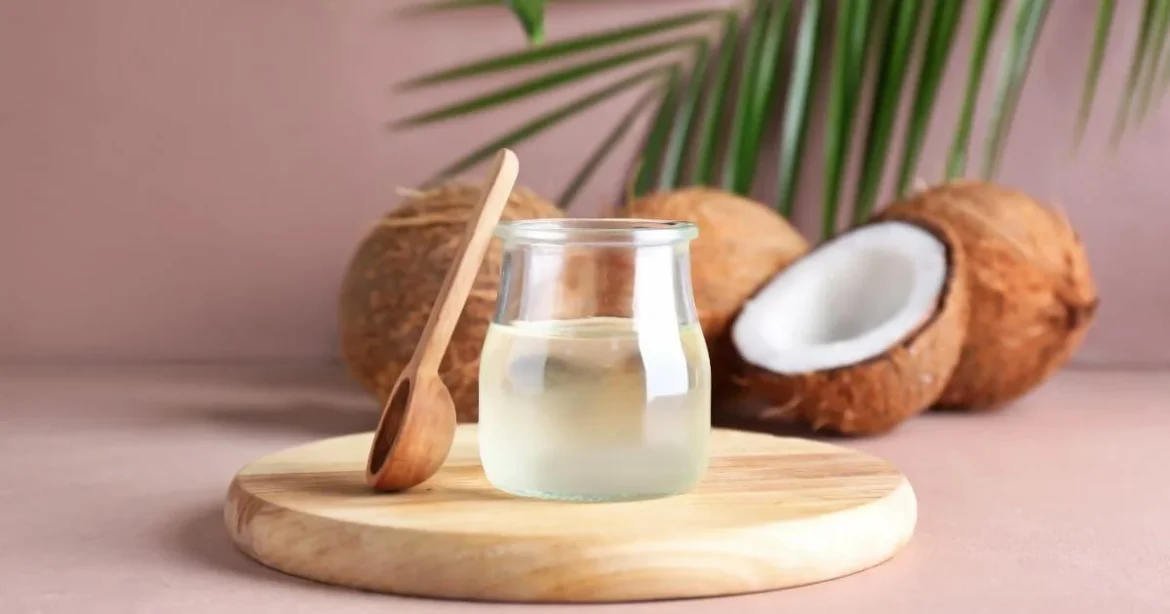Sex is better (and safer) when it’s wetter! Adding a personal lubricant to your next solo or partnered session can help alleviate vaginal dryness by decreasing friction and increasing pleasure and sensitivity! However, with so many factors to consider, choosing a personal lubricant can be a daunting experience. Not only that, it’s an unregulated industry with so many of your favorite lubes often being the worst offenders for unsafe ingredients and hyper-osmolality. For example, Coconut oil is often touted as a natural alternative that’s chemical-free, hydrating, and cheap – making it an attractive option to use as a sexual lubricant. But, is it safe? Let’s dive in and explore – can you use coconut oil as lube?
Benefits of Using Coconut Oil as Lube
Natural Moisturizer
Firstly, coconut oil prevents dryness and reduces friction during intimate activities, making it a popular choice.
Long-lasting
Second, it provides durable, long-lasting lubrication, which is a significant advantage during extended sessions.
Sensitivity Friendly
Lastly, for those sensitive to commercial lubricants, coconut oil’s natural composition can be a soothing alternative.
Potential Risks of Coconut Oil for Sex
Though coconut oil makes for a fantastic body moisturizer and cooking ingredient, there are many factors that make it potentially unsafe to use as a sexual lubricant.
Can You Use Coconut Oil As Lube: Condom Compatibility
Firstly, coconut oil can degrade latex, the material most commonly used in condoms. It increases the risk of breakage and thereby compromising protection against sexually transmitted infections (STIs) and unintended pregnancies. Mineral oils, found in many sexual lubricants and common skincare products including hand lotions, deteriorate latex condoms by 90% within 60 seconds of exposure, according to a 1989 study.
Impact on Vaginal Health
Second, the oil’s thick consistency might disrupt the delicate balance of the vaginal microbiome. This potentially leads to yeast infections or bacterial vaginosis in susceptible individuals.
Residue and Clean-up
Lastly, oil-based lubes like coconut oil are not water-soluble, which means they can be difficult to wash off, leaving a residue that might feel greasy or lead to irritation. Further, coconut oil in particular is non-comedogenic, meaning it clogs pores.
Expert Opinions on Using Coconut Oil as Lube
Experts, including those from the American College of Obstetricians and Gynecologists (ACOG), typically recommend caution. They highlight the potential for increased infection risks and reduced condom efficacy. Always consult a healthcare provider before choosing coconut oil as your lube, especially if you have skin sensitivities or a history of vaginal infections.
Safe Alternatives to Coconut Oil as Lube
If you’re looking for natural alternatives that are effective and safe, consider these options:
Water-Based Lubricants
These are safe to use with condoms, less likely to cause irritation, and do not disrupt the vaginal flora.
Silicone-Based Lubricants
Silicone lubes offer a durable and condom-safe option. They are a strong alternative for those seeking longevity beyond what water-based lubricants can provide.
Conclusion
While coconut oil has its appeals, it’s crucial to weigh these against the potential health risks. Water-based and silicone-based lubricants are often safer, more effective choices. Consulting with a healthcare professional will help you decide can you use coconut oil as lube, and ensure that your lubricant choice is safe and appropriate for your needs.
Stay tuned to this blog for more insights and advice on making informed decisions about your sexual health and wellness.



